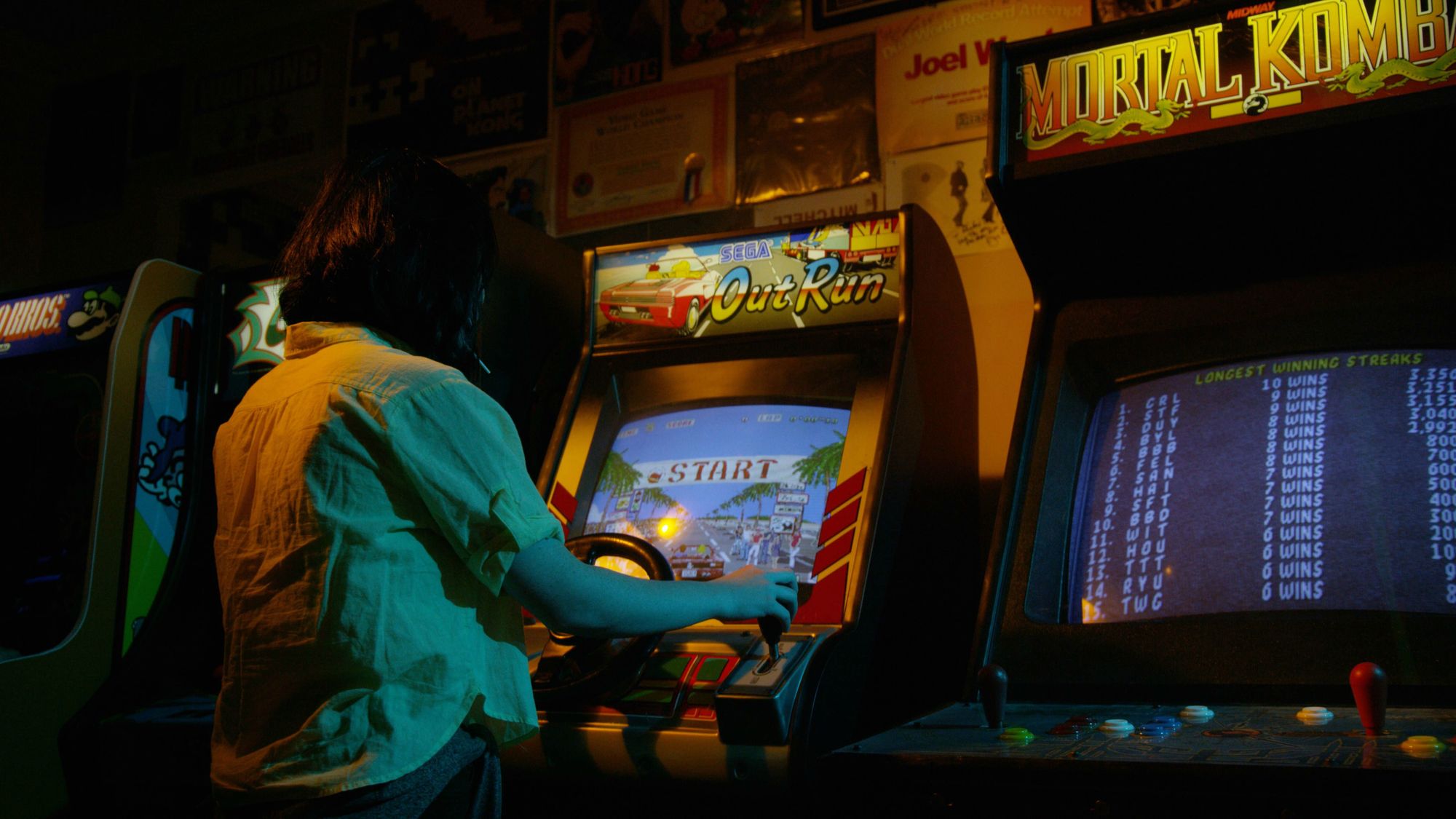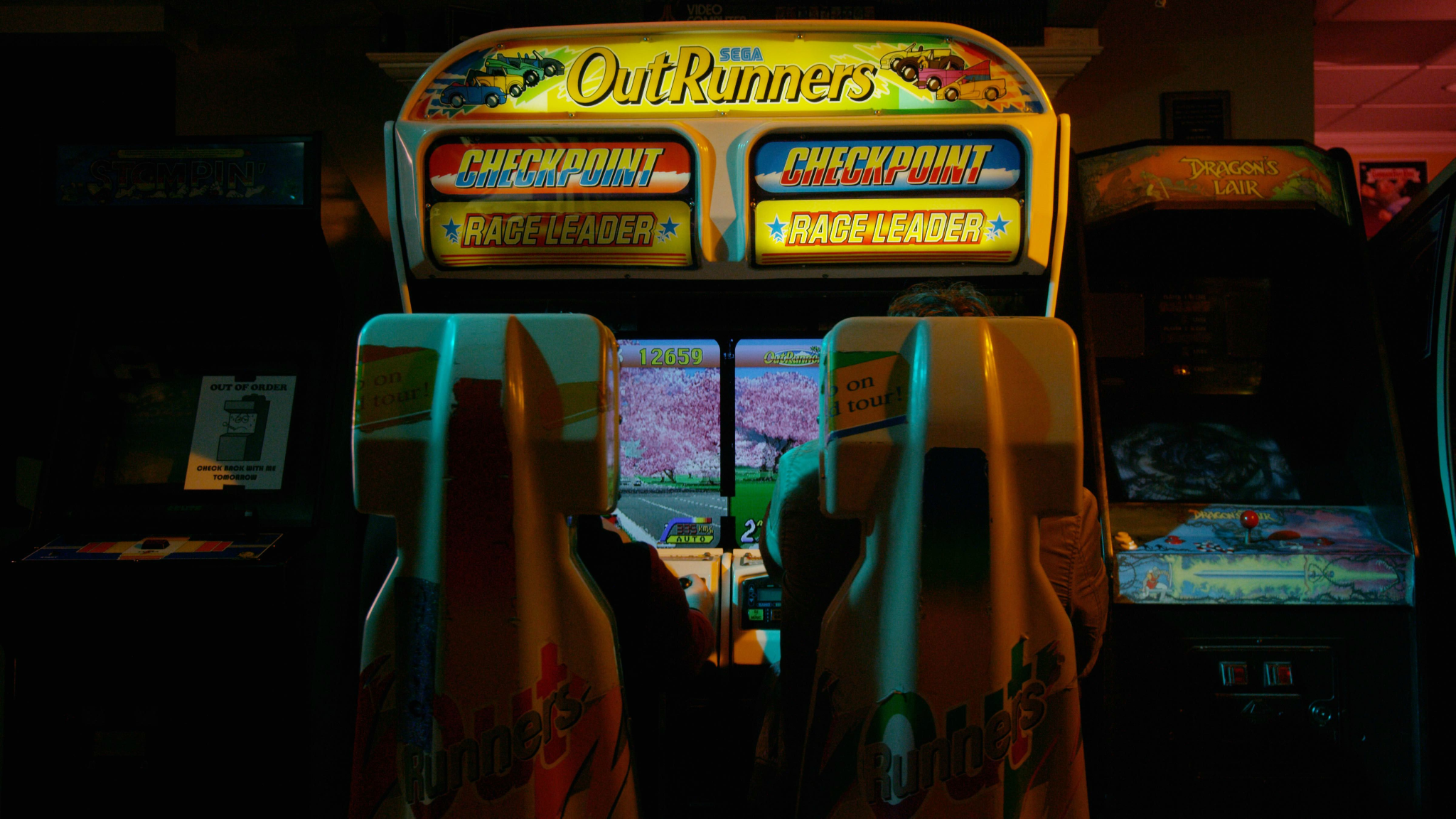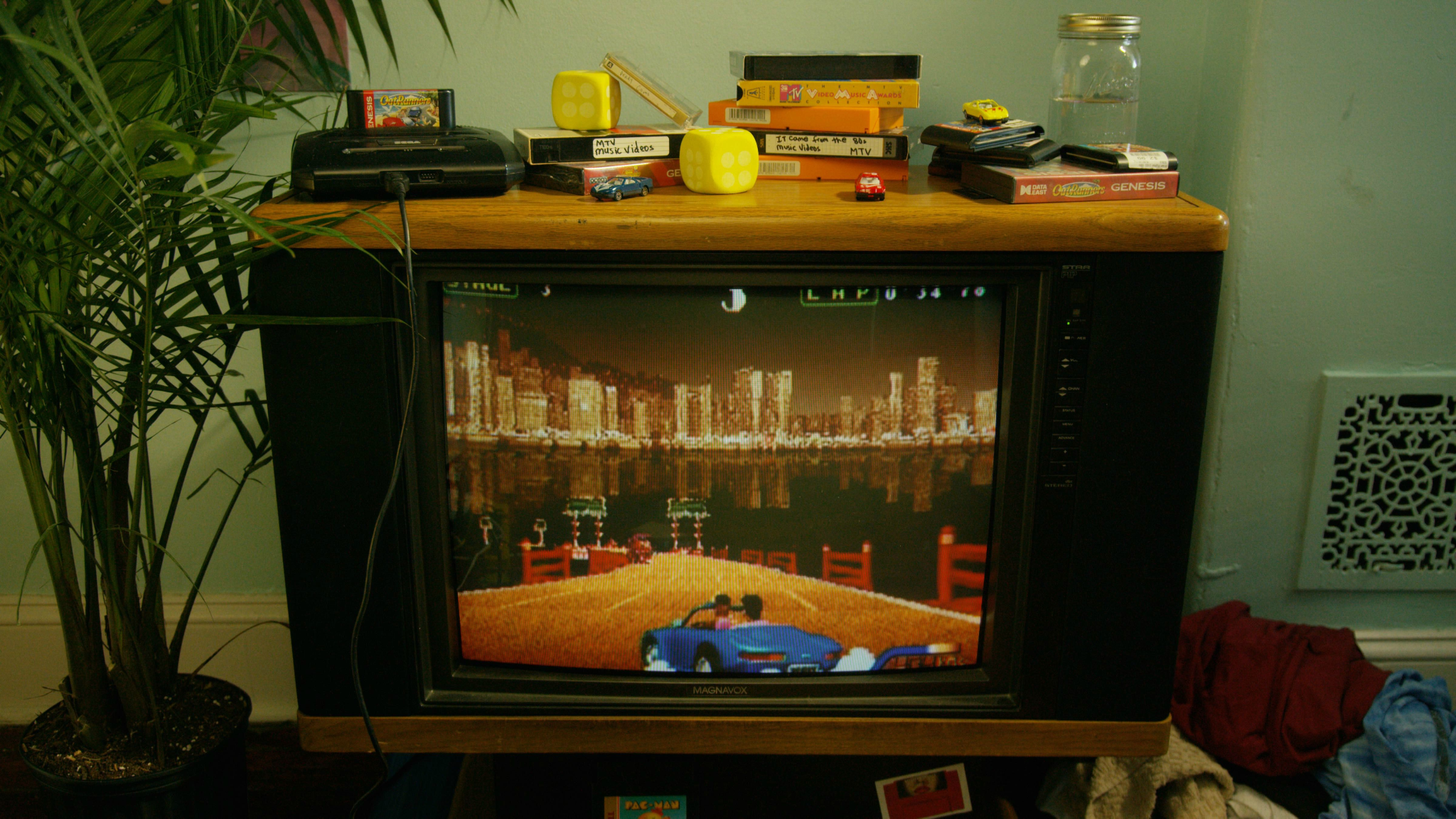Unlocking Flow: An Afternoon at the Arcade
Outrunning anxiety

“During flow, we typically experience a sense of control—or, more precisely, a lack of anxiety about losing control that is typical of many situations in normal life.” - Mihály Csíkszentmihályi, flow pioneer
If there's one thing I miss from when I was about ten, it's hours of unabashedly immersed gaming. No responsibilities, no worries, just being in the moment. Is there a way back?
I disappeared into the monochrome pixel world of Pokémon Red on the GameBoy Color. I was so proud of the hundreds of hours on the play counter, while already having caught all 151 pocket monsters. The save game is now corrupted, but the memory is forever.
As a schoolchild, I never had a console. Some friends did, so I liked visiting the guys who had an NES, SNES, or N64. When I went for a sleepover, I always woke up early and if no one was up yet, I could play their games. That was magical.
A few years later, we got a PlayStation 2, and my brothers and I became obsessed with Grand Theft Auto: Vice City and San Andreas. As I write this, I realize just how few games we had. There was no backlog, we had just enough.
With my 20s in sight, gaming diminished in priority. The dawn of puberty and the accompanying package deal of stress and anxiety almost entirely erased my lust for video games. I still followed the industry via magazines but played very little.
Gavin Annand describes it aptly in his piece The Mind of a Child: "Something is lost in the experience of games as you journey down the path towards becoming a grumpy old gamer."
High school passed, then college, university, and my first office job.
Three letters and Tripels
And then I went to an arcade. Blast Galaxy, one big room full of dusty, sticky cabinets about fifteen minutes by ferry from Amsterdam Central Station. It’s dark, dimly lit by only the beaming CRTs, accompanied by the pounding music from exclusively the 80s.
Almost all games date from before the turn of the century. I walk past a machine called Outrun and see someone playing. The cabinet is shaped like a Ferrari Testarossa and moves with the player's steering. Only, the game itself doesn't look that good. Grainy, like it's somewhere between 8 and 16-bit.
I am nevertheless fascinated and start playing as soon as the seat is free. Initially, I keep missing the corners and want to give up, but after a few runs, I start to get the hang of it. I'm getting closer and closer to the high score top twenty.
At that point, I had three Belgian Tripels, and simultaneously feel slightly tipsy and hyper-focused. I did it! I may enter a name, or more precisely, initials.
Before I came here, I had already done some research on arcades. For example, watching the engaging documentary The King of Kong: A Fistful of Quarters. I had heard that 80s kids were just as bawdy as 90s kids. I chuckle as I enter ASS.
Next to OutRun is Outrunners. Now I must confess that I am not alone here. I went on an expedition with my girlfriend a month earlier but overlooked these racing cabinets. For this second visit, I invited a friend, a gamer.
My buddy and I play Outrunners against each other and it's addictive. I know that alcohol is not a healthy drug, but I am convinced its disinhibiting effect silences my inner critic at this moment. I feel like that kid playing couch co-op again, far from a grumpy old gamer.

The ingredients for flow
Recently, I bought an original Xbox and a CRT television the same age as me. I'm playing games like Halo for the first time, and Tony Hawk again. I had almost put myself away as a retro purist, lingering in an idealized version of the past.
But now I know better: that same "arcade" experience, those short challenging runs, have me completely immersed. It's something Breath of the Wild could not do to me, although I thoroughly enjoyed playing it. Arcade gaming has brought me back to basics, to achieving a childlike flow state.
Now the moral of this story is not that you need alcohol to enjoy old games. Or that I will never play massive open-world games like BotW again. No, it's that arcade games are designed to make you completely disappear into the moment within a matter of seconds.
They contain all the critical ingredients for reaching a flow: clear goals, optimal challenges, and clear, immediate feedback. This goes beyond just having fun. The real joy may even come later, as the father of flow Mihály Csíkszentmihályi says:
“When we are in flow, we do not usually feel happy – for the simple reason that in flow we feel only what is relevant to the activity. Happiness is a distraction. It is only after we get out of flow, at the end of a session or in moments of distraction within it, that we might indulge in feeling happy. And then there is the rush of well-being, of satisfaction that comes when the work is completed. In the long run, the more flow we experience in daily life, the more likely we are to feel happy overall.”

I want to conclude with a brief reflection on my previous article on backlog anxiety - which, in hindsight, was still too focused on productivity and efficiency - after reading a post on Reddit's patient gamers sub that resonated with me:
“I found that as someone with anxiety and OCD, I really struggle with decision paralysis."
For perfectionists, getting into the moment can take quite some effort. From choosing which game to play in your precious free time, to what choices to make in that game. The top comment hit me and had a significant influence on this article:
“You're here to have fun. This isn't a job so stop working. You can't screw it up, only the game can. Breathe and just pick something. Play it until you want to play something else. Then play something else."
It's what I did in the arcade, having fun until I got bored. Then on to the next cabinet, the next, and then going home satisfied, because I knew I challenged myself, persevered, and simply had oldskool unforgettable fun with a friend.
Fortunately, even though the responsibilities and worries grow with each additional year of adulthood, I am grateful I learned the lesson in time. Don't overthink video games, only total surrender will unlock flow. Action and awareness merge, the sense of time alters, and you're in control.
Now on to Level 2: applying it to the open-world game we call life.
I like to share the music to which I write my articles. For this one, I had the great Fred Again.. at NPR's Tiny Desk on repeat. This is a great example of a musician unlocking flow.
Sources
- Csikszentmihalyi, M. (1997). Creativity: Flow and the psychology of discovery and invention
- Csikszentmihalyi, M., Abuhamdeh, S., Nakamura, J. (2014). Flow. In: Flow and the Foundations of Positive Psychology.
